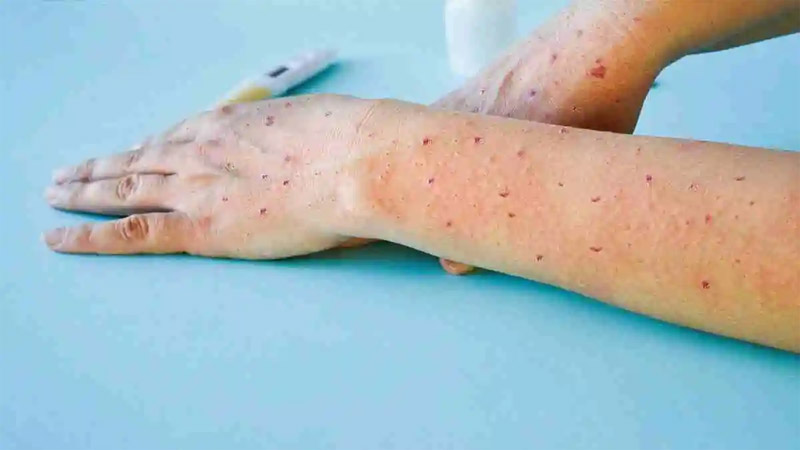NEW DELHI, Aug 23: Young children are at increased risk of exposure to tomato flu, and if not controlled and prevented, the transmission might lead to serious consequences by spreading in adults as well, warns a recent study published in The Lancet Respiratory Medicine journal.
Tomato flu, or tomato fever, was first identified in Kollam district of Kerala on May 6, according to the Lancet report.
The infection has been reported in 82 children younger than five years by local government hospitals as of July 26.
Apart from Kerala, Tamil Nadu and Odisha have reported cases of tomato flu.
“Children are at increased risk of exposure to tomato flu as viral infections are common in this age group and spread is likely to be through close contact. Young children are also prone to this infection through use of nappies, touching unclean surfaces, as well as putting things directly into the mouth,” read the report published on August 17.
“…If the outbreak of tomato flu in children is not controlled and prevented, transmission might lead to serious consequences by spreading in adults as well,” it added.
The rare viral infection, which got its name on the basis of the eruption of red and painful blisters throughout the body that gradually enlarges to the size of a tomato, is currently in an “endemic state”.
Though considered non-life-threatening, a vigilant management is desirable to prevent further outbreaks, especially because of the dreadful experience of the COVID-19 pandemic, according to the study.
Although the virus shows symptoms similar to those of COVID-19 — including fever, fatigue, body aches and rashes on skin — the report in the medical journal suggests that it could be an after-effect of chikungunya or dengue fever in children rather than a viral infection.
“The virus could also be a new variant of the viral hand, foot, and mouth disease, a common infectious disease targeting mostly children aged 1–5 years and immunocompromised adults…,” it explained.
As of now, no antiviral drugs or vaccines are available for the treatment or prevention of tomato flu. (PTI)


